
Rosemary essential oil is a colorless or pale yellow mobile liquid with a strong, fresh, minty-herbaceous scent and a woody-balsamic undertone. It blends well with lavender, oregano, thyme, pine, basil, peppermint, elemi, cedarwood, petitgrain, cinnamon and other spice oils. The…
Rosemary essential oil is a colorless or pale yellow mobile liquid with a strong, fresh, minty-herbaceous scent and a woody-balsamic undertone. It blends well with lavender, oregano, thyme, pine, basil, peppermint, elemi, cedarwood, petitgrain, cinnamon and other spice oils.
The principal constituents of rosemary essential oil are: pinenes, camphene, limonene, cineol, borneal, camphor, linalol, terpineol, octanone, and bornyl acetate. General actions on the physiology include: analgesic, antimicrobial, anti-oxidant, antirheumatic, antiseptic, antispasmodic, aphrodisiac, astringent, carminative, cephalic, cholagogue, choleretic, cicatrizant, cordial, cytophylactic, diaphoretic, digestive, diuretic, emmenagogue, fungicidal, hepatic, hypertensive, nervine, parasiticide, restorative, rubefacient, stimulant (circulatory, adrenal cortex, hepatobiliary), stomachic, sudorific, tonic (nervous, general), and vulnerary.
Scientists have found rosemary essential oil beneficial in the treatment of various ailments including: acne, baldness and hair care, dry & damaged over-processed hair, congested & dull skin, dandruff, aches & pains, arthritis, debility/poor muscle tone, gout, muscle stiffness, muscular cramp, poor circulation, low blood pressure, rheumatism, liver congestion, fever, nervous exhaustion, fatigue, neuralgia, sciatica, eczema, greasy or oily skin/scalp, insect repellent, lice, scabies, slack tissue, cellulitis, edema, water retention, sprains, strains, asthma, bronchitis, coughs, whooping cough, colic, indigestion, flatulence, dysmenorrhea, leucorrhea, colds/flu, headache, nervous tension, and stress-related conditions.
Although rosemary essential oil has many benefiting qualities, there are some contra-indications. High doses of rosemary essential oil taken orally have been found to be neurotoxic. It is recommended that people who are pregnant or have high blood pressure should not use rosemary essential oil, and people who are epileptic or show signs of epilepsy should not use rosemary essential oil in any instance. The camphor constituent in rosemary has been known to induce seizures in epileptics. In extremely rare instances rosemary essential oil has been found to induce epileptic-like seizures in people with no known medical history of seizures; however, scientists have found rosemary essential oil to be safe when used topically. It has been reported to be non-toxic, non-irritant (in dilution only), non-phototoxic and non-sensitizing.
Rosemary hydrosol is the plant distillate water remaining from producing the essential oil. Hydrosols are growing in demand and now some distilleries are making hydrosols as the primary production, not the by-product from distilling essential oils. Some hydrosols are edible but are best used as sprays for various things. Rosemary hydrosol has a surprising floral scent and taste, and when used as a drink has no sharpness. Consumers should practice safety when using hydrosols: The same contra-indications and safety warnings apply for both the hydrosol and essential oil of rosemary.
Rosemary hydrosol has been shown to be helpful with treatment concerning: the gallbladder, digestion, detoxification, as a diuretic, antioxidant, as a toner for oily to normal skin, protecting hair keeping it shiny and soft, dry and over-processed hair, acne, and as a circulatory stimulant. You can add it to your conditioners and shampoos for healthier hair or as an after-shower spray: just mist evenly throughout your hair, then comb through. It can also be used in the kitchen as a flavor enhancer.
These two forms of rosemary can be used topically to help with many specific ailments as well as general well-being. For those who find the odor of rosemary to be too sharp or prefer to take herbal extracts as supplements for general health, rosemary leaf extract is available for internal use. Rosemary leaf herbal extract acts as a circulatory and nervine stimulant, which in addition to the toning and calming effect on the digestion makes it a remedy that is used where psychological tension is present.
The main constituents in the herbal extract are: 1% volatile oil including borneol, linalol, camphene, cineole and camphor; tannins, bitter principle, and resins. These components have general actions and properties that are: carminative, aromatic, antispasmodic, antidepressant, rubefacient, parasiticide, antimicrobial, astringent, emmenagogue, nervine, and stimulant.



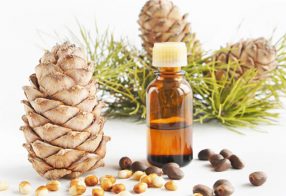

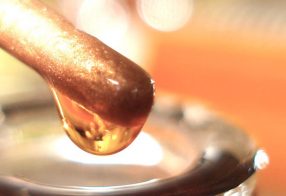

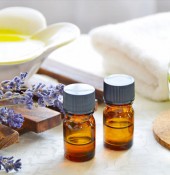
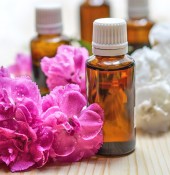
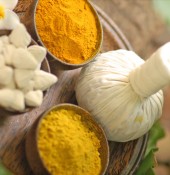
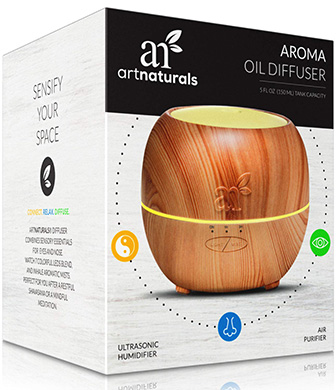


Leave a comment